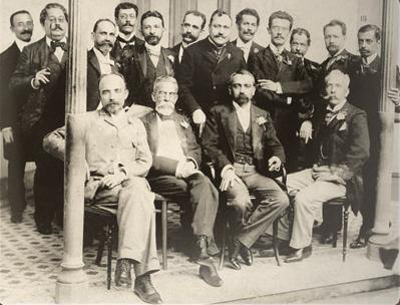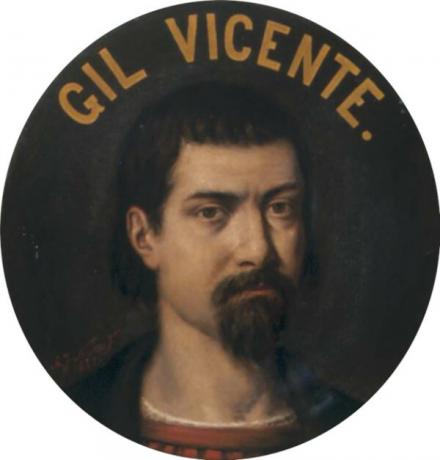It is impossible not to immediately associate the name of Olavo Bilac to the parnassianism, important and controversial literary movement of our lyrics. Although he was not the forerunner of the Parnassian movement, he became the most famous poet of the style, alongside writers Alberto de Oliveira and Raimundo Correia. Bilac was an avid defender of classical literature, and such engagement can be seen in his poems, which rescued, in addition to elements of Greco-Roman literature, the fixed forms of lyricism.
olavo bilac gave preference to fixed forms, having special appreciation for the sonnet, a classical form of the lyrical genre first documented in the first half of the second century, in the work of Italian writer Giacomo da Lentini. Although the writer today is known for his almost inaccessible vocabulary, for his formalism and cult of form at the expense of content, the sonnets of Olavo Bilac appealed to the public and to literary critics and were repeated to exhaustion in soirees and literary salons between the 1900s and the mid-1990s. 1920. His popularity, especially among the high society of Rio de Janeiro at the time, earned him the nickname “Principe of Brazilian Poets”, a title granted by the magazine
Phon-phon, an important weekly that circulated in the first half of the 20th century.In order for you to know a little more about the poet's preciosity, purity of form and language, Brasil Escola selected five poems by olavo bilac for you to read and admire. These poems were taken by literary critics as true masterpieces of the “Prince of Brazilian Poets”. Good reading!

Olavo Bilac among the founding members of the Academia Brasileira de Letras (standing, fourth from left to right)
HEAR STARS
"Now (you shall say) to hear stars! Right
You've lost your mind!" And I'll tell you, however,
That, to hear them, I often wake up
And I open the windows, pale with astonishment...
And we talked all night while
The Milky Way, like an open canopy,
Sparkles. And, when the sun came, homesick and in tears,
I still look for them in the desert sky.
You will now say: "Mad friend!
What conversations with them? what a sense
Do you have what they say, when they're with you?"
And I will say to you: "Love to understand them!
Because only those who love can have heard
Able to hear and understand stars."
Do not stop now... There's more after the advertising ;)
(Poetry, Milky Way, 1888.)
NEL MEZZO DEL CAMIN...
I arrived. You've arrived. tired vines
And sad, and sad and tired I came.
You had the soul of dreams populated,
And the dream soul populated I had...
And we stopped suddenly on the road
Of life: long years, stuck to mine
Your hand, the dazzled view
I had the light that your gaze contained.
Today, you go again... on departure
Not even the tears moisten your eyes,
Nor does the pain of parting move you.
And I, lonely, turn my face, and shiver,
Seeing your disappearing figure
At the extreme bend of the extreme path.
(Poetry, Bushes of Fire, 1888.)
TO A POET
Away from the sterile maelstrom of the street,
Benedictine, write! in the coziness
From the cloister, in silence and peace,
Work, and persist, and file, and suffer, and sweat!
But that in the form the job is disguised
Of effort; and the live plot is built
In such a way that the image is bare,
Rich but sober, like a Greek temple.
Do not show the ordeal at the factory
From the master. And, of course, the effect pleases,
Without remembering the scaffolding in the building:
Because Beauty, twin of Truth,
Pure art, enemy of artifice,
It is strength and grace in simplicity.
(Afternoon, 1919.)
PORTUGUESE LANGUAGE
Lazio's last flower, uncultivated and beautiful,
You are both splendor and grave;
Native gold, which, in impure denim,
The crude mine among the gravel sails...
I love you like this, unknown and obscure,
Loud tuba, simple lyre,
That you have the trumpet and the hiss of the storm,
And the list of nostalgia and tenderness!
I love your wild freshness and your aroma
Of virgin jungles and wide oceans!
I love thee, O rude and painful language,
In which from the maternal voice I heard: "my son!"
And when Camões wept, in bitter exile,
The blissless genius and the lackluster love!
(Afternoon, 1919.)
THE WAVES
Among the quivering warm ardent,
The night at high sea enlivens the waves.
They rise from the wet Golcondas slings,
Living pearls, the cold nereids:
They intertwine, run fleetingly,
They come back, crossing each other; and, in lewd rounds,
Dress the white and round shapes
Purple algae and gemstone glaucous.
Onyx vagus thighs, polished bellies
Alabaster, foam silver hips,
Breasts of dubious opal burn in the darkness;
And green mouths, full of moans,
That phosphorus ignites and amber perfumes,
They sob for vain kisses that the wind takes...
(Afternoon, 1919.)
By Luana Castro
Graduated in Letters


